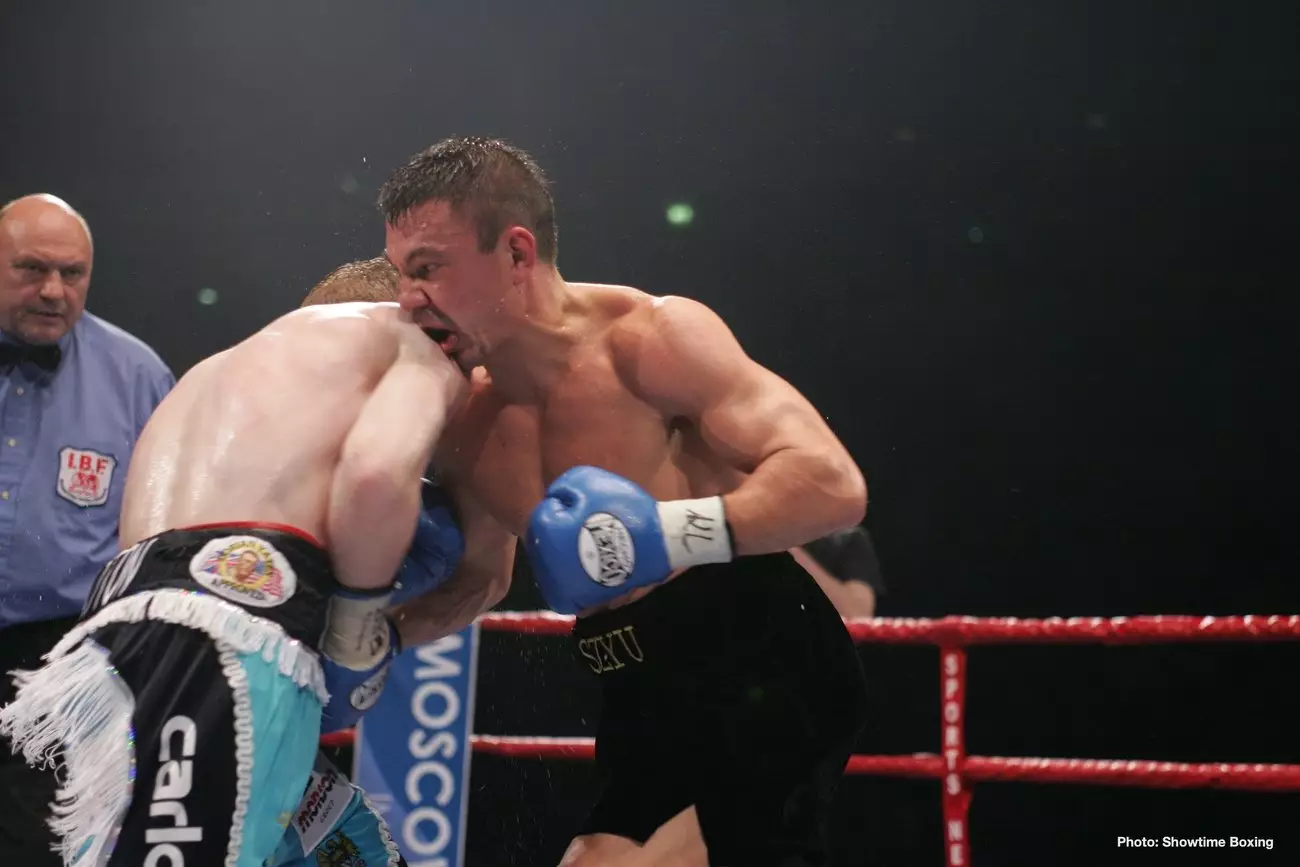Kostya Tszyu, the iconic Australian boxer born on September 19, 1969, celebrates his 55th birthday today. With a career that has imprinted itself upon the history of boxing, Tszyu is remembered not just for his accolades but for the electric performances that encapsulated his fighting spirit. While fans may recall his spectacular victories, they might also think of the heartbreak suffered in his career’s twilight. His bouts against Zab Judah and Ricky Hatton stand out as pivotal moments that define his legacy, each encapsulating the beauty and brutality of the sport.
Tszyu’s journey began far from the boxing glitz of Las Vegas and Madison Square Garden. Born in Russia, he quickly made a name for himself, showcasing extraordinary skill and determination. After relocating to Australia, Tszyu honed his craft, turning professional in 1992. His rise through the ranks of the light-welterweight division was meteoric. With a string of impressive victories, he earned titles and respect, defeating notable opponents such as Juan Laporte and Roger Mayweather. Tszyu wasn’t merely a fighter; he was a master of the ring, utilizing a combination of technical skill and raw power that left fans enchanted.
The pinnacle of Tszyu’s career came during the 1990s and early 2000s, culminating in his unification bout against Zab Judah. Scheduled for November 3, 2001, this fight was portrayed as a classic clash of styles—Tszyu’s brute force against Judah’s speed and finesse. The anticipation was palpable as both fighters entered the arena, each undefeated and holding titles. Yet, what unfolded was more than just a match; it became a moment in boxing history that would be dissected for years to come.
In the early moments of their fight, Judah appeared to seize control, displaying an impressive speed that had fans on their feet. He won the first round convincingly, raising questions about Tszyu’s ability to adapt. Would the Australian powerhouse be quick enough to match the American’s speed? As the second round progressed, the tide turned dramatically. In a matter of seconds, Tszyu unleashed a right-hand punch that would silence the crowd. It was a precise strike, landing on Judah’s chin like a thunderbolt, resulting in a devastating knockdown. The aftermath was intense; Judah struggled to regain his footing, and despite his protests, the referee called off the fight. The world witnessed a champion stripped of his composure and dignity, reminding boxing fans of the fragility of greatness.
This moment did not just mark a victory for Tszyu; it also altered the trajectory of Judah’s career. The psychological implications of that knockout resonated for years. Judah’s reaction post-fight was just as shocking as the bout itself; he exhibited a wild mixture of disbelief and anger, an aftermath indicative of how one punch can reverberate through a fighter’s mind. Tszyu’s victory solidified his status but also cast a shadow on Judah’s future, representing the harsh realities of professional boxing.
Boxing is often celebrated for its heroics, but it just as equally embodies tragedy. Tszyu’s career serves as a reflection of this duality—the exhilarating highs of his championship reign contrasted with the heart-wrenching lows of his defeats. The loss to Ricky Hatton later in his career marked a bitter end, further contrasting his otherwise illustrious journey. Yet, these setbacks do not diminish his achievements. Instead, they highlight the fierce competition and relentless dedication inherent in the sport.
As we reflect on Kostya Tszyu’s career, we acknowledge not only his remarkable victories but the brutal reality that accompanies each fight. This birthday serves as a reminder that even the greatest athletes face their demons in the ring. Today, we celebrate Kostya Tszyu—not just as a fighter but as a symbol of resilience, reminding both fans and future athletes that every battle shapes their legacy. Happy birthday, Champ! Your journey continues to inspire the world of boxing.

